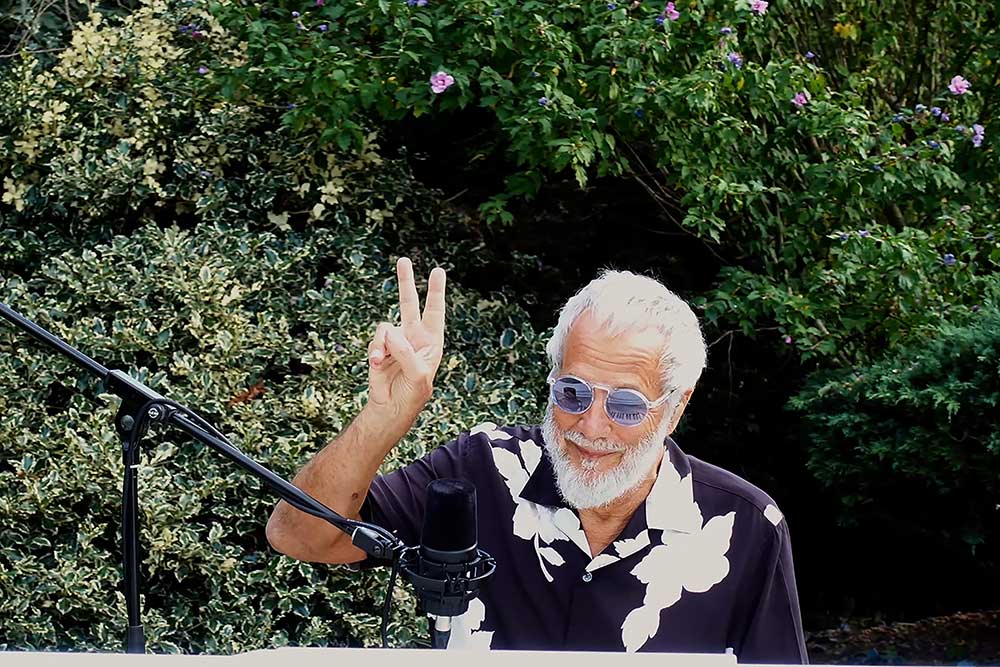Biography
Cat Stevens (born Steven Demetre Georgiou) grew up above his parents’ cafe in the heart of London’s West End theatre district. Inspired by the Beatles, folk and American blues he began writing songs in his teens and quickly found success with his debut single, ‘I Love My Dog’. His follow-up single, ‘Matthew & Son’ narrowly missed the top spot in the UK charts but helped establish him as a bona fide pop star.
In 1968 Cat’s career was derailed when he contracted a near fatal bout of TB. After a long convalescence during which he underwent somewhat of a spiritual awakening he returned to the industry in 1970 looking and sounding completely different. The clean cut teen idol was replaced by a long-haired, bearded troubadour and the heavy orchestration of his early songs gave way to stripped-down, intimate acoustic arrangements.
A sequence of four consecutive albums: Mona Bone Jackon (1970), Tea for the Tillerman (1970), Teaser and the Firecat (1971), and Catch Bull at Four (1972), would elevate Cat to the very heights of musical stardom producing many of his most beloved and timeless songs including ‘Wild World’, ‘Father & Son’, ‘Peace Train’, ‘Moonshadow’ and ‘Morning Has Broken’. The sincerity and imagination of his work firmly established him as being at the forefront of the emerging singer-songwriter genre.
In 1975, during the peak of his commercial success, a near-death experience in the Pacific ocean prompted Cat to dedicate himself to the service of God. After a period of exploration he found his direction when his brother gave him a copy of the Quran and in 1977 he converted to Islam. The following year he changed his name to Yusuf Islam and shocked the music world by walking away from his career.
Over the next three decades Yusuf dedicated himself to starting a family, founding faith schools in North London and establishing a number of internationally recognised charities. His tireless efforts in the field of Humanitarian Relief resulted in his being awarded a ‘World Social Award’ for “dedicating his life to aiding the needy and the ill.” and in 2004 he was presented with the Man of Peace award by Mikhail Gorbachev for having worked to “alleviate the suffering of thousands of children and their parents and dedicating himself to promoting peace, reconciling people and the condemnation of terrorism.”
In the early 200s Yusuf decided to once again take to the global stage. He spoke out in the media against fanaticism and war, and called for peace and unity. In the following years he tentatively returned to mainstream music making with the hope that his songs could help to build bridges and spread a message of peace. His full return came with the release of An Other Cup in 2006 and he has since released a further three studio albums and toured extensively.
Yusuf’s return has delighted audiences who had long dreamt of hearing his soft voice, compelling melodies, and poignant lyrics once again. It has also been warmly received by the music industry. In 2014 he was inducted into the Rock’n’Roll Hall of Fame, his 2017 album, The Laughing Apple saw him receive his first ever Grammy nomination and in 2019 the accolades continued when he was inducted into the Songwriters Hall of Fame. 2020 saw Yusuf release Tea for the Tillerman², a critically acclaimed re-imaging of his seminal Tea for the Tillerman album. 2021 sees the 50th anniversary of another of his classic albums, Teaser and the Firecat which includes the timeless anthem of hope, Peace Train that he was delighted to perform with Playing For Change and over 25 incredibly talented musicians from over 25 countries.
